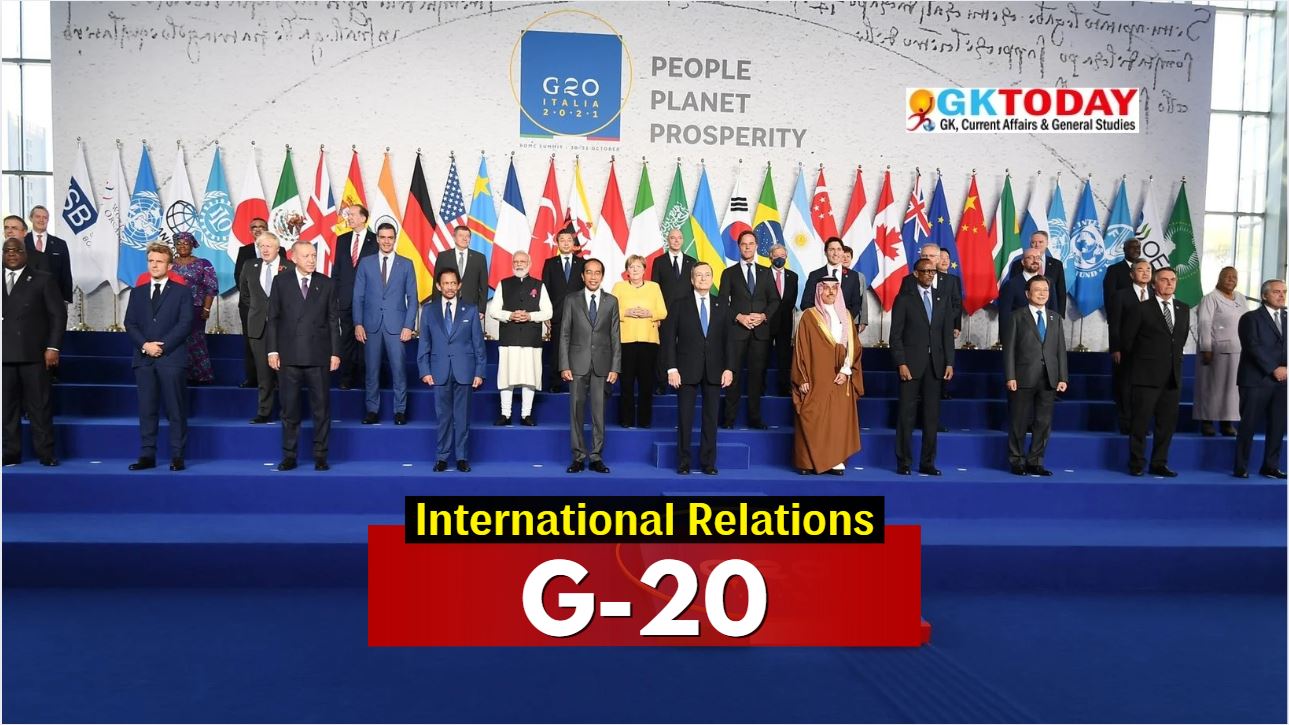G-20 – A Comprehensive Overview
The G-20, or Group of Twenty, is international forum that brings together major advanced and emerging economies. Established in 1999, it aims to address global economic challenges and promote stability.
Introduction to G-20
The G-20 was formed in response to the need for a platform where major economies could collaborate on global economic issues. The forum’s inception was driven by the recognition that financial crises could no longer be managed by a handful of countries alone.
Full Form and Establishment
– Full Form – Group of Twenty – Established – 1999 The G-20 was initially a meeting of finance ministers and central bank governors. It later evolved into a summit of heads of state and government, especially after the 2008 financial crisis.
Purpose of the G-20
The primary purpose of the G-20 is to encourage international economic cooperation. It aims to: – Promote international financial stability. – Foster sustainable economic growth. – Address global challenges such as climate change, trade, and development.
Membership
The G-20 consists of 19 countries and the European Union.
- Argentina
- Australia
- Brazil
- Canada
- China
- France
- Germany
- India
- Indonesia
- Italy
- Japan
- Mexico
- Russia
- Saudi Arabia
- South Africa
- South Korea
- Turkey
- The United Kingdom
- The United States
The European Union is represented by the European Commission and the European Central Bank.
Key Objectives
The G-20 has several key objectives that guide its discussions and actions: 1. Promote International Financial Stability – Ensuring that the global financial system is resilient to shocks. 2. Foster Sustainable Economic Growth – Encouraging policies that lead to inclusive growth. 3. Address Global Challenges – Tackling issues like climate change, trade, and development.
Summits
G-20 summits are held annually, bringing together heads of state and government. – Frequency – Annual meetings. – First Summit – 2008, in response to the global financial crisis. – Agenda – Focuses on economic policy coordination, financial regulation, and development issues.
Working Groups and Ministerial Meetings
The G-20 conducts various meetings to discuss specific topics. – Finance Ministers and Central Bank Governors – Regular meetings to address financial and economic issues. – Working Groups – These focus on areas like trade, investment, and development.
Key Achievements
The G-20 has made notable contributions to global governance: – Global Financial Reforms – Initiatives to reform financial institutions post-2008 crisis. – Action Plans – Development of plans for sustainable development and climate change. – Debt Relief – Initiatives aimed at providing debt relief for developing countries, especially during crises.
Challenges Faced by the G-20
Despite its successes, the G-20 faces several challenges: 1. Diverse Membership – Varied economic interests and political systems can complicate consensus. 2. Global Inequality – Addressing disparities in wealth and development remains a pressing issue. 3. Geopolitical Tensions – Conflicts can hinder cooperation among member states.
Current Issues and Focus Areas
The G-20’s agenda has evolved to address contemporary challenges: – COVID-19 Response – Focus on economic recovery and equitable vaccine distribution. – Climate Change – Commitment to sustainable development and environmental protection. – Digital Economy – Regulation and promotion of digital trade and technology.
G-20 and Global Governance
The G-20 plays important role in shaping global governance structures: – Role in International Institutions – Influences the policies of the IMF, World Bank, and WTO. – Coordination with Other Groups – Collaborates with G-7, BRICS, and regional organisations.
Future Prospects of the G-20
The G-20’s agenda is expected to expand further: – Expansion of Agenda – Increasing focus on health, digitalisation, and inequality. – Reform of Global Institutions – Calls for reforming global governance structures to reflect current realities.
Notable Summits
Several G-20 summits have marked milestones: – 2014 Brisbane Summit – Emphasised global economic growth and job creation. – 2018 Buenos Aires Summit – Focused on trade and investment issues. – 2021 Rome Summit – Addressed global health and climate change.
G-20 Engagement with Non-Members
The G-20 actively engages with non-member countries: – Outreach to Non-G20 Countries – Engagement with developing nations and international organisations. – Civil Society and Business Engagement – Inclusion of voices from civil society and the private sector in discussions.


